Parenting Through the Pandemic: A Story in Three Parts
7 min readPrelude
Three weeks before the pandemic closed everything I returned home with my newborn baby. Millions of families carried this added weight of taking care of a brand new life in the most uncertain period of the pandemic.
My older children, then three and four years old, had just started preschool in January. Suddenly, they did not have a school to attend, a library to visit, a park to play in, or time with their grandparents and friends.
There I was on the kitchen table, which was also my home office, looking at my husband chop vegetables and struggle to wake up. The baby was nursing in my lap, the older boys were watching their first stint of cartoons, and odds and ends were scattered in our little home nestled in a desert surrounded by mountains.
“Aisha you had prayed for this. Now you have it, 24/7.” Laughter came to give some respite for my bitterness and disbelief.
With my kids and baby at home and our yearly visit to Pakistan upended I took an emotional decision: Move to Pakistan where I longed for a version of myself that I sorely missed.
I.
The week before online schools started in January 2021 my kids listened to a song about “Zoom school” on repeat. They waited eagerly for their first day until they sat in front of the screen and realized how boring Zoom school was. Why and how would they listen to a two dimensional teacher and connect with kids over a screen? I tried to be helpful and positive while struggling to keep their baby brother from crawling on to the computer.
The pressure of being present while they attended online classes, helping with arts and crafts, while managing a baby and my own needs was impossible. My husband traveling, no grandparent at hand, and no nanny, I wondered if I was the only one in this situation. I felt like a failure. My kids didn’t listen to me. There must be a biological quirk in mothers where the response to our children acting differently becomes self-doubt and self-loathing.
I know now after talking to many other parents that I wasn’t alone in my struggles, though it sure felt like it when I saw all the other kids attending online school calmly. My son shouted in my face, slammed the screen shut, and ran out of the room.
After a few days I realized that Zoom school was crushing the precious connection I had with my sons. Excavating under my initial “there must be something wrong with me” I saw the futility of online schooling as a substitute for education. My children had an appropriate response at their age to Zoom school and by forcing them to do it I was ghosting their natural instincts for learning.
When schools went online again in Sindh on April 6, I withdrew my children indefinitely.
II.
With trepidation I approached new schools in Islamabad. I asked: What can you do for my family if we go online again? I explained that even if I find a way for them to participate (read: force them) I don’t believe in its value for my children.
One school principal said to me, “When parents tell me their children won’t go on Zoom I say to them you’re lying. Your children are on tablets, video games, and phones all day long. Why can’t they do school online too?”
“Mine don’t have that level of screen engagement except for TV shows that we monitor,” I explained.
Keeping my children off screens and immersed in play, especially outdoors, has been the marrow of our parenting style.
Another educator said, “We make Zoom school very engaging for preschoolers. They must attend. There is no concession for missing classes.”
I felt an impending doom about the future. I kept asking myself what do I really want for my children?
Having choices marked my privilege and entitlement in a society where the pandemic magnifies the dismal state of our public health services and public education. The missed learning due to the pandemic is compounded by decades long deficits in education where a majority of Pakistani children, who attend government schools, struggle with the basics of reading and writing.
Today over 20 million children are out-of-school in Pakistan.
The pandemic has also exhibited the underlying rot of a capitalist system that continues to widen the income gap at a sickening pace.
Even in the worst of times those of us with financial security do not have to put our children out on the streets, carrying empty bags of rice, collecting paper and plastic from the garbage of posh homes. I see groups of kids like these, mostly of Afghan origin, in Islamabad everyday.
Even in the best of times these children do not go to school. They do not have a change of clean clothes when they want. When their shoes break they have to walk barefoot. They are confident and yet reclusive. All under 10 years of age I sense their maturity is much greater than I, a 40-year old mother of three, whose worst fear is a second year of school closures.
Eight days after in-person schools began in August, the National Command Center on COVID-19 announced school closures in Islamabad, which are still in place.
Simultaneously something much greater and older than the pandemic came to attack my nervous system: my mother’s alcoholism.
III.
I sat on my older brother’s lap as they played “Smooth Operator” by Sade on the cassette player as we drove to the Karachi American School. It was 1985 and the only year my three older brothers and I would go to school together because of the large age gap between us.
There is not a day in my memory that I didn’t want to go to school. I remember being eight years old and collecting a jar full of cockroaches for my science teacher Mr. Weston. When I took out the jar he didn’t flinch. He just reminded me to put some holes in the lid so that the cockroaches can breathe next time.
Reflecting on my elementary years, despite my strong feelings towards imperialism and internalized white supremacy, I recognize the immensity of the positive role school played in my childhood. My classrooms were safe spaces. I had many wonderful teachers who were excited by the strange kid I was.
I know acutely that without going to school the impact of my mother’s alcoholism would have even been greater.
It feels impossible to describe the depth of this rupture in my life. I’m still enveloped in its devastating impact.
I remember being a child mothering her mother. A part of me is arrested in development. Alcoholics Anonymous calls someone like me an adult child with a laundry list of relatable character traits. I continue to be disproportionately impacted by my parent’s alcoholism, frozen with conditioned shame and guilt for holding boundaries to keep myself safe. Then I’m shattered by self-doubt when my version of events is denied. The cycle reaches its programmed conclusion when I worry about her and her hurt, ignoring my own.
The protest to online schooling during the pandemic has been missing a critical piece: Too many of us are assuming that homes are safe spaces for children of any economic background.
School may be the only place a child gets a break from experiencing abuse or witnessing it. School may be the only place where an adult is consistently kind and encouraging. School may be the only place where an adult sees you as a whole person. School may be the only place where you get to feel the wholehearted fun of being a child.
The continued school closures leave open too many cracks for young people to fall into.
I wonder how many young kids will be hurt with a second year of online schooling. Not just for the “missed learning”, which is a real thing, but for their tender souls that are helpless in their home lives.
This thought has been circling around me like a kettle of vultures: if the pandemic had happened 35 years a go I am not sure I would be here today.
The writer teaches yoga and creative writing to teens. She lives in Islamabad with her husband and three children.
For the latest news, follow us on Twitter @Aaj_Urdu. We are also on Facebook, Instagram and YouTube.














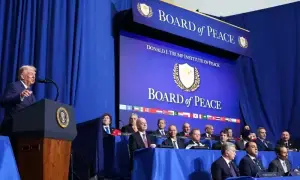

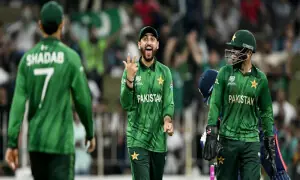
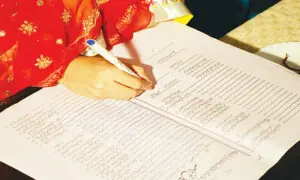

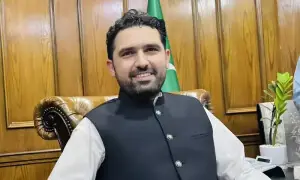


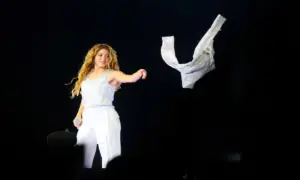
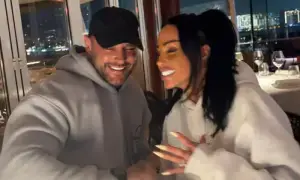
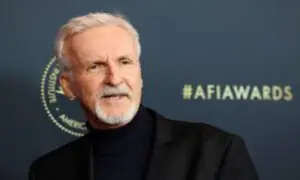

Comments are closed on this story.